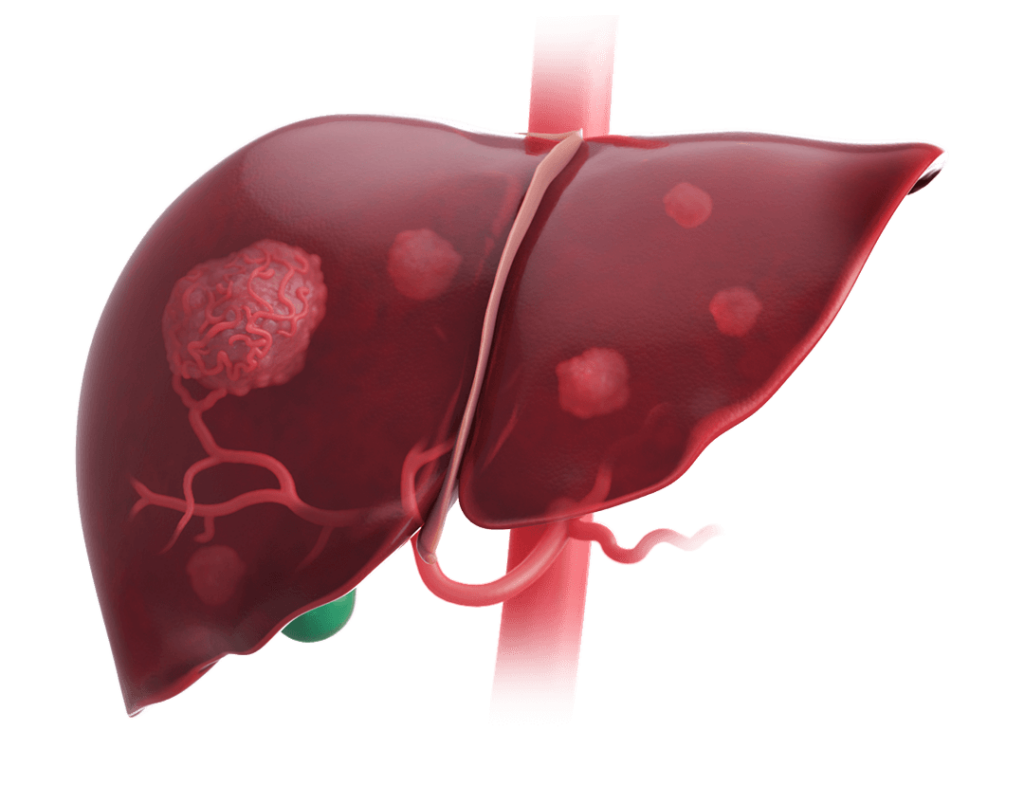
Hepatocellular carcinoma (HCC) is the most common form of primary liver cancer,1 with over 30,000 patients diagnosed annually in the US.2 Early-stage disease can be effectively managed through liver transplantation, surgical resection or ablation. However, HCC patients still often have poor outcomes. Most patients will have reoccurrence and more than 50% present with advanced disease.3 The median survival following diagnosis is 6 to 20 months with an average 5-year survival of 10%.4
While there has been some progress with immunotherapy in HCC, unfortunately, most HCC patients still do not respond to checkpoint inhibitors. In addition to baseline conditions in the liver which limit T-cell activity, pro-inflammatory conditions enhance immunosuppression in the liver. This drives both disease progression and resistance to immunotherapy.5
TriSalus’ HCC clinical program is evaluating our investigational TLR9 agonist, nelitolimod (also known as SD-101), delivered deep into the vasculature of the liver tumors using our FDA cleared device. Traditionally, TLR9 agonists like nelitolimod have not been administered intravenously but by direct injection into superficial tumors, making treatment of large or multiple tumors very difficult.
TriSalus is studying the delivery of nelitolimod directly into the arteries supplying the liver in order to distribute the drug to HCC tumors within the organ, irrespective of size, number and location of these tumors. Infusion by the TriSalus device for the Pressure-Enabled Drug Delivery™(PEDD™) method improves targeted delivery of therapy into high-pressure tumors using a standard intraarterial procedure.
Because immune cells are suppressed throughout the liver and micro-metastases or undetectable additional tumors may be present, tissue that appears normal is also treated with nelitolimod. Importantly, the nelitolimod treatment is being given in combination with a systemic (or intravenous) immunotherapy to enable treatment of tumors within the liver as well as tumors that may be present in other parts of the body.
Nelitolimod is in clinical development and has not been approved in the US or globally.
Pressure-Enabled Delivery of Nelitolimod With Checkpoint Blockade for Primary Liver Tumors (PERIO-02) is an open-label, phase 1b/2 study of the pressure-enabled hepatic artery infusion of nelitolimod, a TLR9 agonist, alone or in combination with intravenous checkpoint blockade in adults with hepatocellular carcinoma (HCC) and intrahepatic cholangiocarcinoma (ICC).
This trial is currently recruiting. Learn more on periotrial.com.
We are studying the combination of nelitolimod with Pressure-Enabled Drug Delivery™ (PEDD™) to enable immunotherapies in the liver and pancreas. Our clinical research is focused on bringing this potentially transformative treatment platform to patients.
1. Llovet JM, et al. Nat Rev Dis Primers. 2021;7(1):1-28.
2. Aly A, et al. Hepatic Oncology. 2020;7(3):HEP27.
3. Villanueva A. New England Journal of Medicine. 2019;11(380(15)):1450-1462.
4. Golabi P, et al. Medicine (Baltimore). 2017;96(9):e5904.
5. Li X, et al. Nat Rev Cancer. 2021;21(9):541-557.
We encourage you to read and evaluate terms of use, privacy, security and other similar policies of the destination site as they may differ from TriSalus’ standards.
TriSalus assumes no responsibility nor does it control, endorse or guarantee any aspect of your use of any third party sites. Additionally, the presence of this link does not imply the third party site’s endorsement of TriSalus or this website.
Thank you for visiting our site.